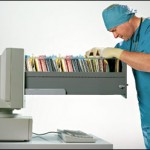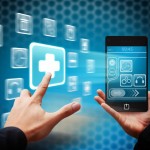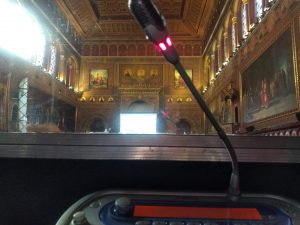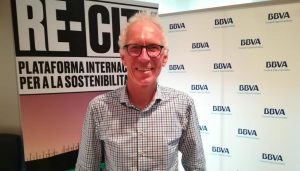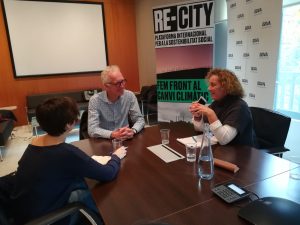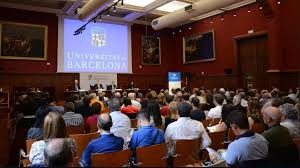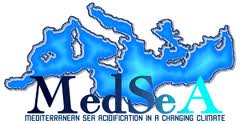El pasado viernes 17 de febrero tuvo lugar en Barcelona la jornada sobre e-Health: visión europea, soluciones locales, que fue inaugurada por el Conseller de Salud de la Generalitat de Catalunya, Antoni Comín.
Es un hecho que las nuevas tecnologías están cambiando nuestra vida tal y como la conocíamos. La aparición de internet supuso el inicio de una revolución que poco a poco ha ido penetrando en casi todos los sectores de la sociedad, modificando nuestra forma de relacionarnos. Las redes sociales, los blogs, los canales de vídeo, las compras por internet, los smartphones o las Apps, nos permiten tener acceso a una gran cantidad de información y servicios que antes no teníamos. El término e-health está de moda, y seguramente muchos os preguntaréis qué es exactamente.
Pues la e-Salud (eHealth en su terminología en inglés) es el término que define el conjunto de Tecnologías de la Inofrmación y la Comunicación (TICs) que, a modo de herramientas, se emplean en el entorno sanitario en materia de prevención, diagnóstico, tratamiento, seguimiento y gestión de la salud, a fin de evitar costes al sistema sanitario y mejorar su eficacia. Engloba diferentes productos y servicios para la salud, como aplicaciones móviles, la telemedicina, los dispositivo wearables (para la monitorización que se integran en ropa y accesorios), el Big Data, los sistemas de apoyo a la decisión clínica, el internet de las cosas o los videojuegos de salud, entre otros.
Pero si existe la E-Salud o E-Health, también existe el E-Paciente, que son aquellas personas que utilizan las nuevas tecnologías para saber más sobre sus dolencias y estar mejor informados. Este tipo de usuarios utiliza los buscadores para investigar sobre los temas que le interesan, es asiduo a los blogs de medicina en los que encuentra tratamientos novedosos o participa en foros relacionados donde solicita la opinión de otros. El resultado es un paciente que acude a su médico con un mayor conocimiento de si mismo, con la idea de participar y ser tenido en cuenta, eliminando de un plumazo la antigua relación unidireccional médico – paciente. A los médicos les toca escuchar, argumentar y solventar las dudas de estos nuevos E-Pacientes más preparados y más activos, ya sea en la consulta como a través de las redes sociales. Teóricamente la eSalud supondrá una transformación radical de la sanidad, por lo que se está trabajando para garantizar la eficacia y seguridad de sus sistemas, a fin de que los profesionales sanitarios estén preparados y los datos proporcionados por los dispositivos de monitorización puedan integrarse en la asistencia sanitaria. Con cual de estas dos imágenes os identificáis más? 